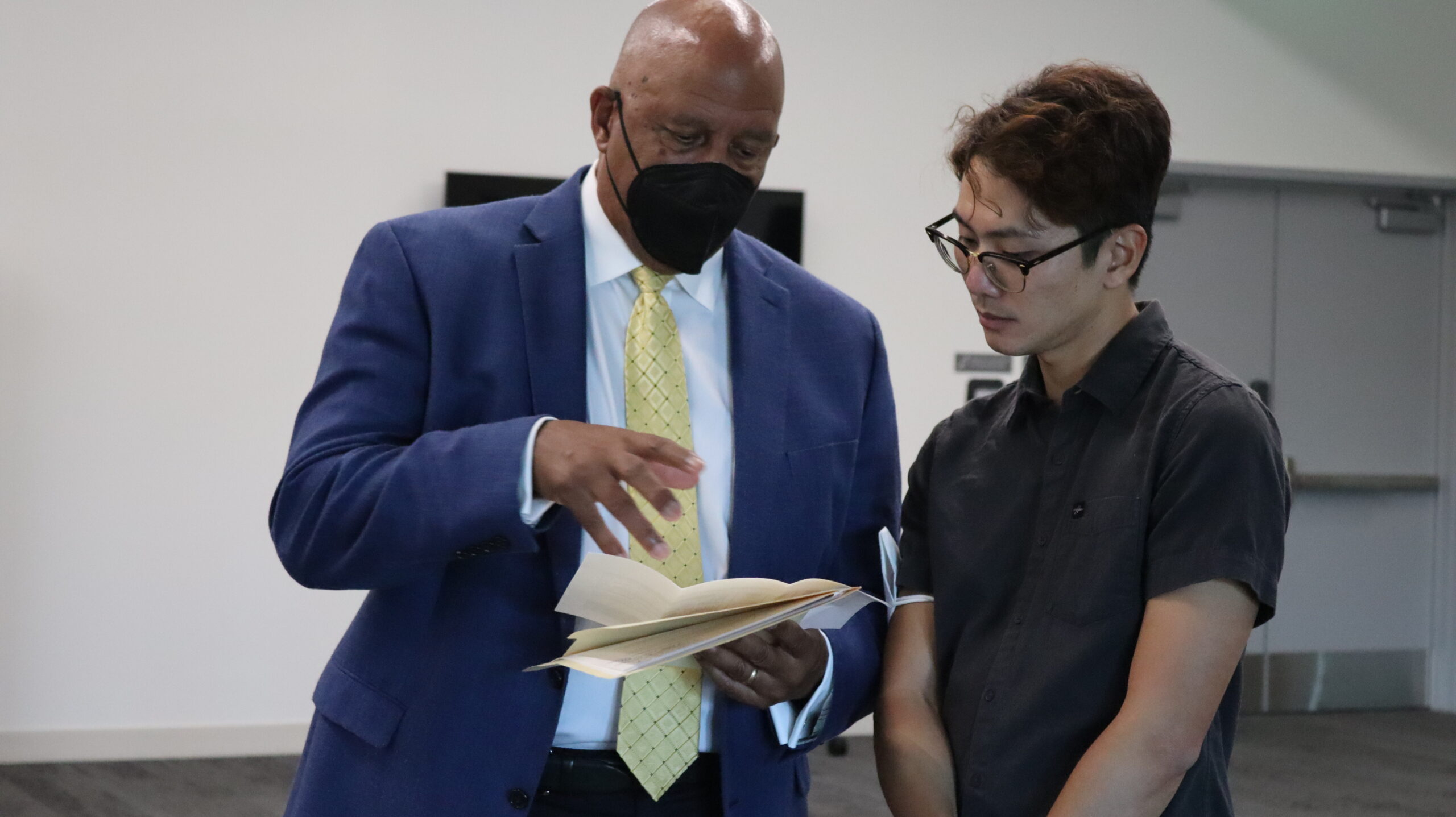In October, Parham and Nguyen discussed the various grievances of the API community. Photo by Daniel Rivera.
By Daniel Rivera, Web Editor
Since coverage began back last spring, the Asian Pacific Cultural Center (APCC) has gained a director, but still no physical space on campus. After months of negotiations with the Asian Pacific Islander (API) community, the administration has announced that a new room in Welch Hall has been selected.
This has come after a commitment by Parham in a meeting promising to have a place selected for a center following protests headed by numerous student groups in October.
Ongoing negotiations were starting with a place selected initially in the Loker Student Union (LSU) building, meeting room 13, which was deemed too small and was rejected.
Eventually, a new room was selected, Welch Hall room 250 for the center, according to an announcement by the AAPI Cultural Center on Instagram on Nov. 22. Welch Hall 250 is located on level 2 or the ground level for the rest of the campus and it’s also near the welcome center instead of deeper inside the building.
“Currently, there are two people in that space that they need to move out, and then the space would have to get a cleaning and some temporary furniture brought in… my goal is to have that space accessible to students by the first week of the spring semester,” AAPI director Nathan Nguyen explained.
One of the people who need to be moved from this room is from enrollment services and the other person is from the presidential scholars.
Nguyen said that perhaps in the next 2-5 years, another room might be sought out for the APCC. He has the desire to have a center in the LSU due to the proximity to other cultural centers but says the Welch Hall is adequate for the time being.
Among the various API demands made over a month ago, the principal one, the center with some exceptions, has been filled. In the meantime, Nguyen has been promised that several of the other demands are being worked on.
One of the remaining demands is to “hire an API therapist/counselor,” to have a counselor who can speak to API struggles and needs in a more culturally sensitive way. As of now, a committee is being assembled to start deliberating on who to fill that position. Nguyen hopes to have that person selected and hired before they open access to the various students, most likely in a room adjacent to the center itself.
Some of the demands are promised to be fulfilled according to Nguyen, one of which was raising API enrollment rates to 10% by fall 2024, and have a report on how that will be done around the end of this semester. Another demand was to document the gap in achievement and opportunity and to redefine the API community as an underrepresented community.
Parham’s commitment to API demands started after a protest back in October, bringing to light that the API had gone without a center since last spring. Nguyen said that he will continue to advocate for the various communities on campus.

